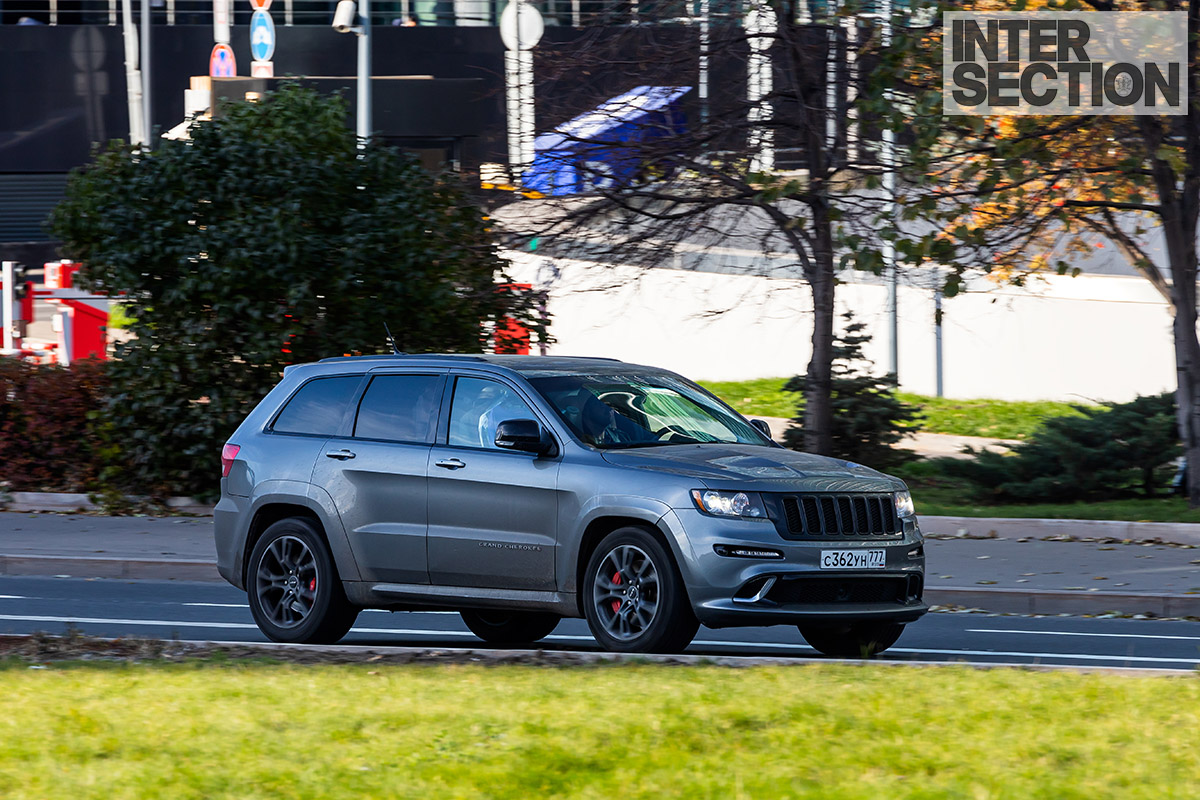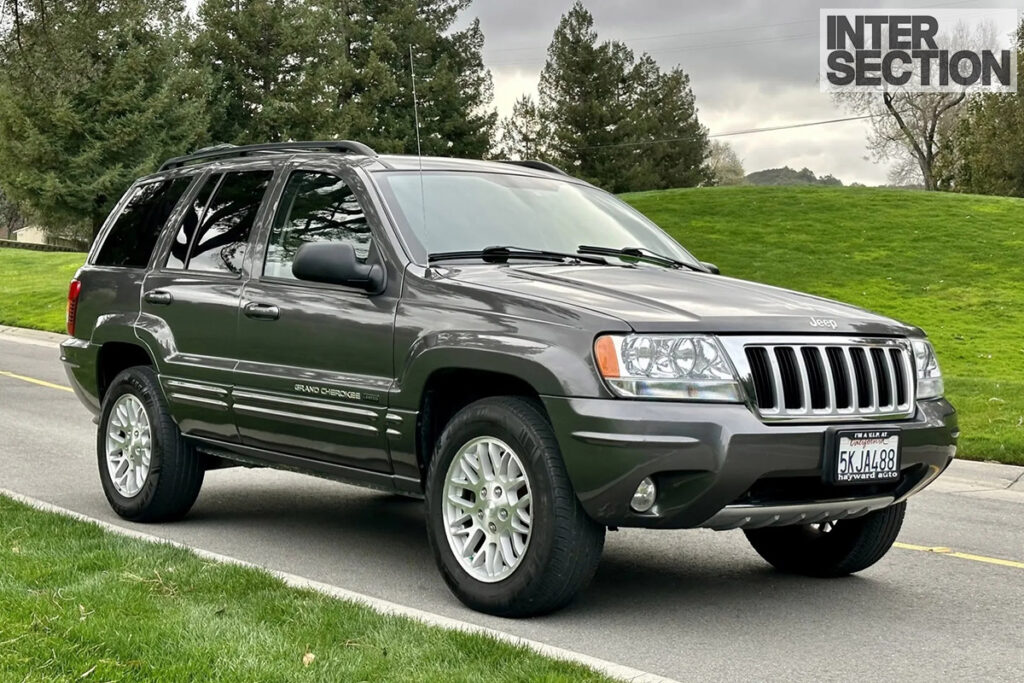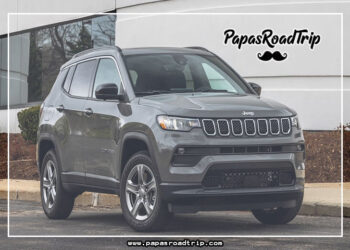When you’re shopping for a Jeep Grand Cherokee, you want the perfect balance of style, performance, and reliability. But what if your dream SUV turns into a nightmare of costly repairs and endless headaches?
Not all Grand Cherokees are created equal, and certain model years are better left on the lot. The last thing you want is to invest in a vehicle that drains your wallet and your patience. In this guide, we’ll dive into the Jeep Grand Cherokee years you should avoid and why.
Whether you’re buying used or just curious, this information can save you from making a costly mistake. Stick around—you’ll thank yourself later.

Credit: intersectionmagazine.net
Common Issues Across Model Years
The Jeep Grand Cherokee has a solid reputation as a rugged and capable SUV. But not all model years live up to the hype. Some years come with recurring problems that could leave you frustrated—and your wallet lighter. Let’s dive into the most common issues owners have faced across certain model years so you can make a smarter decision.
Transmission Problems
Transmission issues have plagued several Jeep Grand Cherokee models, particularly in earlier years. Owners often report rough shifting, delayed engagement, and complete transmission failure. For instance, 2014 models are notorious for jerky gear changes, leaving many drivers stuck in limp mode on the road.
Before you buy, test drive the vehicle and check for any hesitation or hard shifts when changing gears. If it feels off, walk away. Transmission repairs can easily cost upwards of $3,000, so it’s not worth the risk.
Electrical System Failures
Electrical problems are another headache for many Grand Cherokee owners. Faulty alternators, failing power windows, and dashboard warning lights that won’t turn off are common complaints. The 2011 and 2015 models, in particular, have a reputation for these issues.
Imagine being stranded because the alternator gave out unexpectedly. Before purchasing, inspect the vehicle’s electrical components and ask about recent repairs. A pre-purchase inspection by a trusted mechanic can save you from costly surprises.
Engine Reliability Concerns
Engine problems are a significant concern in certain Jeep Grand Cherokee years. Some models, like the 2011 version, are known for excessive oil consumption, while others suffer from frequent stalling. These issues can lead to expensive repairs or, worse, an engine replacement.
Ask the seller for maintenance records and look for red flags like low oil levels or warning lights during your test drive. Is the engine running smoothly, or does it sputter? Trust your instincts if something doesn’t feel right.
Suspension And Steering Troubles
Suspension and steering problems are another weak spot in some Grand Cherokee years. Owners have reported clunking noises, uneven tire wear, and poor handling. The 2012 model, for example, is infamous for its suspension issues that make driving uncomfortable.
Pay attention to how the vehicle handles on bumpy roads or during sharp turns. Does it feel stable, or are there unusual noises? Replacing suspension parts can add up quickly, so factor this into your decision.
By knowing these common issues, you can avoid buying a Jeep Grand Cherokee that will cost more to fix than it’s worth. Do your homework, ask questions, and always test drive before committing to a purchase. Which of these issues would be a deal-breaker for you?
Notorious Model Years To Avoid
The Jeep Grand Cherokee is a popular choice for SUV enthusiasts. While many models deliver reliability, some years are known for issues. These problematic years stand out due to complaints about performance, safety, and durability. Knowing which models to avoid can save you time, money, and frustration.
Early 2000s Models
The early 2000s Grand Cherokee models faced frequent mechanical problems. Transmission issues were common and costly for owners. Electrical malfunctions were also reported, affecting key systems. Rust problems reduced the lifespan of these vehicles. Buyers often experienced high repair costs and poor resale value.
2011 Grand Cherokee
The 2011 model introduced a redesign but came with serious flaws. Transmission failures were a major concern for many owners. Problems with the air suspension system led to costly repairs. Faulty electronics caused issues with navigation and dashboard functions. Recalls for this year highlighted manufacturing defects in critical components.
2014 Model Year Issues
The 2014 Grand Cherokee saw complaints about its diesel engine option. Many users reported issues with fuel economy and performance. Transmission problems persisted, impacting driving experience and reliability. Faulty software updates created glitches in the infotainment system. These issues frustrated owners and led to frequent service visits.
Recurring Complaints In 2015 Models
The 2015 model continued to face reliability problems. Engine stalling issues created safety risks for drivers. Transmission problems again became a source of frustration. Poorly designed electronic systems led to frequent malfunctions. Owners reported high maintenance costs and dissatisfaction with build quality.
Red Flags When Inspecting A Used Jeep
Shopping for a used Jeep Grand Cherokee can be exciting, but it’s also a process where you need to stay sharp. Not all used vehicles are created equal, and some may come with hidden issues that will cost you later. Knowing the red flags to watch out for can save you from regret and unnecessary expenses down the road.
Warning Lights On The Dashboard
Pay close attention to the dashboard when you turn the ignition key. If warning lights like “Check Engine” or “Service 4WD” remain lit, this could signal underlying issues. Don’t dismiss these as minor glitches—insist on a professional diagnosis before you commit to buying.
Some sellers may clear error codes temporarily to hide problems. Consider bringing an OBD-II scanner if you’re serious about the purchase. It’s a small investment that can reveal hidden trouble.
Signs Of Transmission Wear
A faulty transmission is a common pain point in certain Grand Cherokee models. During your test drive, notice how smoothly the gears shift. Is there hesitation, jerking, or unusual noises?
Slipping gears or delayed shifts might mean the transmission is worn out. Rebuilding or replacing a transmission isn’t cheap, so don’t ignore these red flags.
Uneven Tire Wear And Suspension Issues
Inspect the tires closely. Uneven wear can suggest misalignment or suspension problems. Run your hand across the tire’s surface—does it feel smooth and consistent?
Suspension issues can lead to a rough ride and costly repairs. Jeep Grand Cherokees are known for their off-road capabilities, but excessive off-road use may take a toll on the suspension system.
Leaking Fluids Or Overheating
Check under the hood and beneath the vehicle for signs of leaking fluids. Oil, coolant, or transmission fluid leaks can indicate poor maintenance or mechanical problems. A quick glance can save you from a major headache later.
While driving, keep an eye on the temperature gauge. Overheating is a common issue in older models and can point to problems with the radiator, thermostat, or water pump. Don’t take this lightly—overheating can lead to engine failure.
Are you noticing any of these red flags? If so, it’s time to reconsider or negotiate repairs into the deal. A little diligence now can save you thousands later.
Models With Better Reliability
The Jeep Grand Cherokee has a rich history, but not all years are equal. Some models are known for their reliability and standout features. Choosing a dependable model ensures fewer repairs and a smoother driving experience. Below, we’ll explore Grand Cherokee years with better reliability. These include high-performing older models, recent options, and special editions worth considering.
High-performing Late 2000s Models
The late 2000s models of the Jeep Grand Cherokee earned a strong reputation. Specifically, the 2009 model is praised for its durability and performance. It featured refined engine options like the 5.7L HEMI V8, delivering power and reliability. The 2008 model also stands out with improved interior materials and fewer mechanical issues. These years offer a solid choice for those seeking affordability and dependability.
2018 And Newer Options
Jeep Grand Cherokees from 2018 onward are known for better reliability. These models introduced advanced safety features and refined engine options. The 2018 model, in particular, addressed past transmission concerns. It also delivered smoother handling and enhanced fuel efficiency. Owners often praise these models for their long-term value and fewer breakdowns.
Special Editions With Improved Features
Several special editions of the Grand Cherokee boast enhanced reliability and features. The Trailhawk edition offers better off-road performance and durable components. The Overland trim is another reliable option, blending luxury with practicality. Limited and Summit trims also include premium materials and fewer reported issues. These editions cater to those prioritizing comfort and dependable performance.
Tips For A Smart Purchase
Buying a used Jeep Grand Cherokee can be a smart decision. To avoid costly mistakes, it’s important to make informed choices. Certain years of the Grand Cherokee have known issues. Being aware of these and doing proper research can save you money and stress. Below are practical tips to help you make a safe and confident purchase.
Importance Of A Pre-purchase Inspection
A professional inspection reveals hidden issues that aren’t visible during a test drive. Mechanics can identify engine problems, transmission issues, or worn-out suspension parts. Inspections can also uncover signs of accidents or poor maintenance. Spending on an inspection upfront can prevent expensive repairs later.
Researching Recalls And Service History
Check the vehicle’s recall history to know if repairs were completed. Recalls often involve safety concerns, so unresolved ones can be risky. Review the service records to see how well the car was maintained. A detailed history can provide insights into past issues and overall condition.
Considering Certified Pre-owned Vehicles
Certified Pre-Owned (CPO) Jeeps undergo thorough inspections and come with warranties. These vehicles often include manufacturer-backed guarantees for added peace of mind. Although CPO options may cost more, the reliability and coverage can outweigh the price difference.
Negotiating The Best Price
Research the market value of the Jeep Grand Cherokee you plan to buy. Compare prices online and use this data to negotiate effectively. Point out any flaws or repairs needed to lower the asking price. Being prepared gives you more control during negotiations.

Credit: intersectionmagazine.net

Credit: www.copilotsearch.com
Frequently Asked Questions
What Are The Worst Jeep Grand Cherokee Years To Avoid?
The 2011, 2014, and 2015 models had frequent transmission and electrical problems. Research owner reviews before buying.
Why Do Some Jeep Grand Cherokee Years Have More Issues?
Certain years had manufacturing defects or poorly tested upgrades. These caused reliability issues for many owners.
Are Older Jeep Grand Cherokees Less Reliable Than Newer Models?
Older models, like pre-2010, may have outdated technology and wear. Newer models can have design flaws too.
How Can I Check If A Jeep Grand Cherokee Is Reliable?
Check vehicle history reports, maintenance records, and owner reviews. Forums can be helpful for specific year issues.
Do Transmission Problems Affect Jeep Grand Cherokee Reliability?
Yes, many complaints involve transmission failure, especially in models from 2011 to 2014. Repairs can be costly.
Conclusion
Choosing the right Jeep Grand Cherokee requires careful consideration of its history. Some model years have shown recurring issues, impacting reliability and cost. Research thoroughly before buying to avoid costly repairs and frustrations. Focus on dependable years with fewer reported problems.
Reading reviews and checking maintenance records can help you make a smart choice. A reliable vehicle ensures peace of mind and long-term satisfaction. Always prioritize safety, performance, and overall value. Make an informed decision, and you’ll enjoy your driving experience for years to come.

















